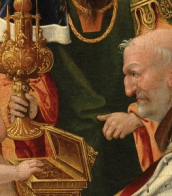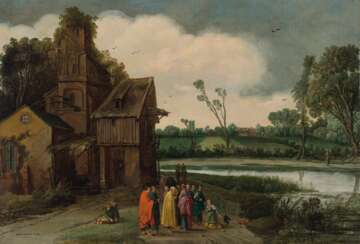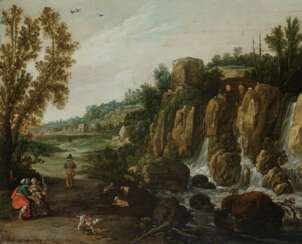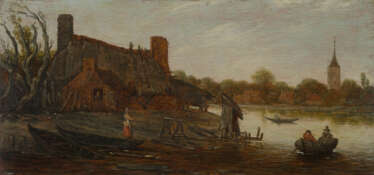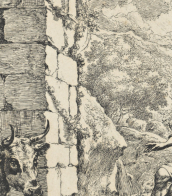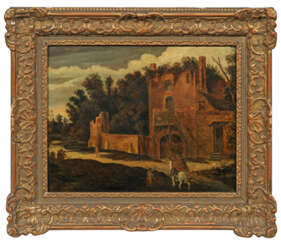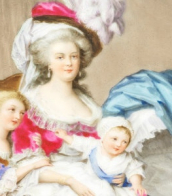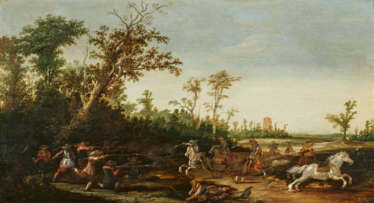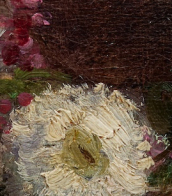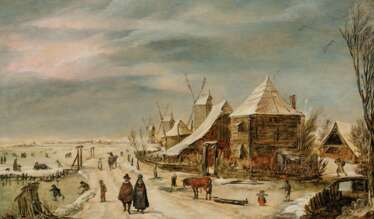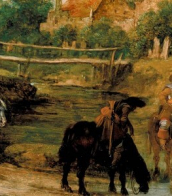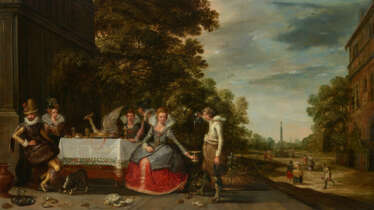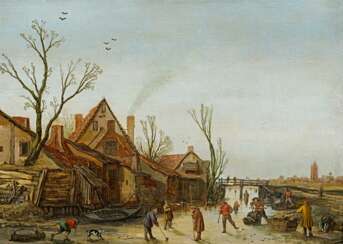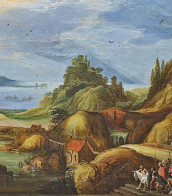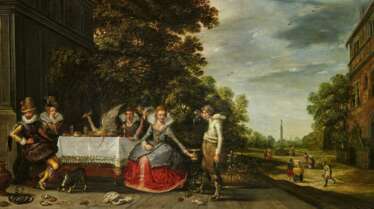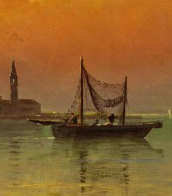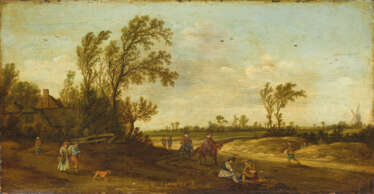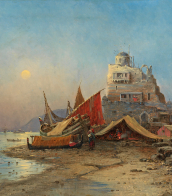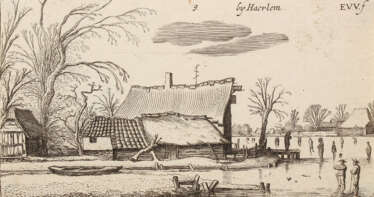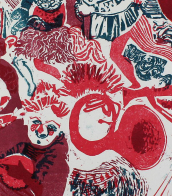esaias van de velde (1587 - 1630)
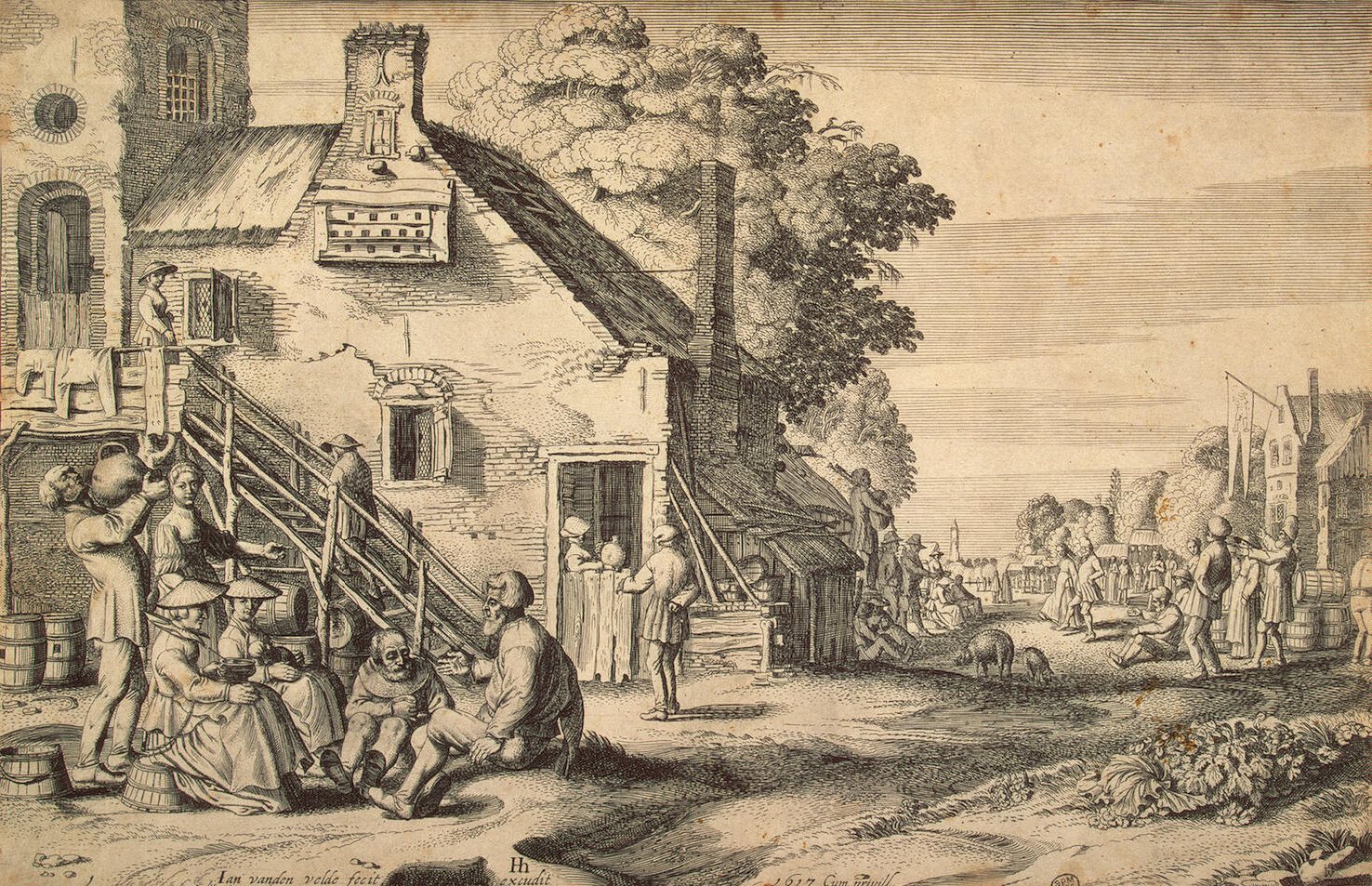
Jan van de Velde was a Dutch Golden Age painter and engraver of animal, landscape and still-life subjects.
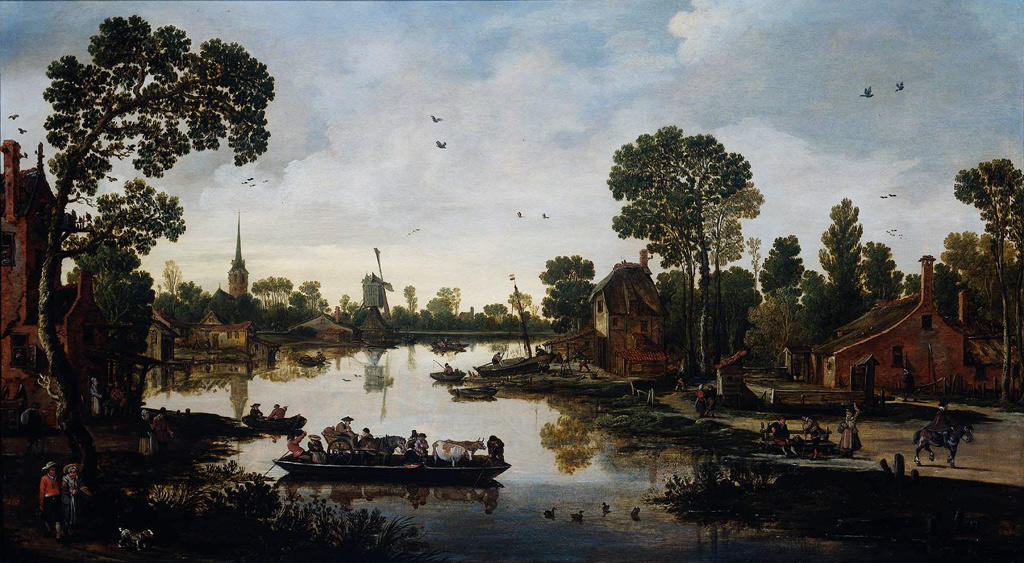
Esaias van de Velde was a Dutch painter and printmaker from the van de Velde family of artists.
Esaias van de Velde is considered a representative of the Haarlem School of painting, which introduced a new, emotional aspect to the Dutch landscape. In addition to landscapes with individual human figures, the artist painted urban views and genre paintings. Esaias van de Velde's later work is characterised by a richness of composition and vivid colour. The artist also painted table scenes and cavalry battles, which became a model for many generations of battalists.
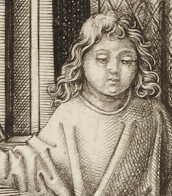

Esaias van de Velde was a Dutch painter and printmaker from the van de Velde family of artists.
Esaias van de Velde is considered a representative of the Haarlem School of painting, which introduced a new, emotional aspect to the Dutch landscape. In addition to landscapes with individual human figures, the artist painted urban views and genre paintings. Esaias van de Velde's later work is characterised by a richness of composition and vivid colour. The artist also painted table scenes and cavalry battles, which became a model for many generations of battalists.
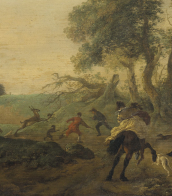

Esaias van de Velde was a Dutch painter and printmaker from the van de Velde family of artists.
Esaias van de Velde is considered a representative of the Haarlem School of painting, which introduced a new, emotional aspect to the Dutch landscape. In addition to landscapes with individual human figures, the artist painted urban views and genre paintings. Esaias van de Velde's later work is characterised by a richness of composition and vivid colour. The artist also painted table scenes and cavalry battles, which became a model for many generations of battalists.


Esaias van de Velde was a Dutch painter and printmaker from the van de Velde family of artists.
Esaias van de Velde is considered a representative of the Haarlem School of painting, which introduced a new, emotional aspect to the Dutch landscape. In addition to landscapes with individual human figures, the artist painted urban views and genre paintings. Esaias van de Velde's later work is characterised by a richness of composition and vivid colour. The artist also painted table scenes and cavalry battles, which became a model for many generations of battalists.
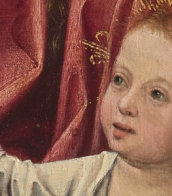
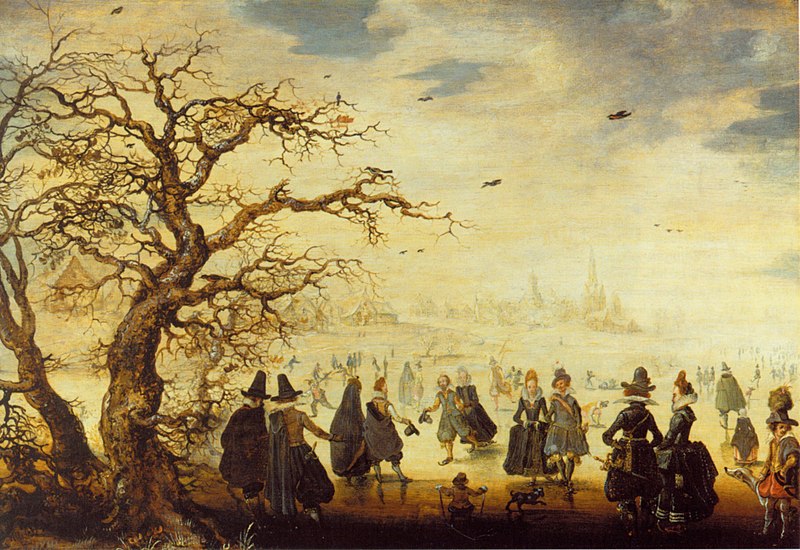
Adam van Breen, born in Amsterdam in 1585 and passing in Norway in 1642, was a notable Dutch Golden Age painter who specialized in winter landscapes. His work is distinguished by its vivid depiction of the icy, bustling life of the Netherlands during the winter months. Van Breen became a member of the Hague Guild of St. Luke in 1612 and worked in various cities including The Hague, Amsterdam, and later Oslo, Norway.
While detailed biographical information about van Breen remains scarce, it is known that he married in 1611 and was registered in the Dutch town’s guild the following year. His artistic style is often compared to that of Adriaen van de Venne, with whom he shared a preference for winter scenes. However, van Breen drew inspiration primarily from Hendrick and Barendt Avercamp, setting his characters apart through their more assertive, stockier figures, sometimes even including portrait-like depictions within his compositions.
Adam van Breen's paintings are celebrated for incorporating figures in luxurious clothing, a reflection of The Hague's status as a political and cultural center. This influence is apparent in his landscape works, which not only capture the beauty of the Dutch winters but also subtly document the societal contexts of the period. In 1617, van Breen illustrated military evolutions for the Prince of Nassau, showcasing his versatility beyond landscapes. His move to Norway in the 1640s introduced a new phase in his career, where he produced several notable portraits.
For collectors and experts in art and antiques, Adam van Breen's work offers a fascinating glimpse into the Dutch Golden Age, characterized by its detailed and lively winter scenes. His paintings, such as those documented in private collections and galleries, remain a testament to his skill and distinctive approach to capturing the essence of his time.
To stay updated on new discoveries, sales, and auction events related to Adam van Breen, signing up for updates from relevant art galleries and auction houses is recommended. This ensures access to the latest information on available works and exhibitions featuring this remarkable Dutch painter.
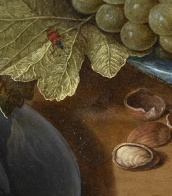

Esaias van de Velde was a Dutch painter and printmaker from the van de Velde family of artists.
Esaias van de Velde is considered a representative of the Haarlem School of painting, which introduced a new, emotional aspect to the Dutch landscape. In addition to landscapes with individual human figures, the artist painted urban views and genre paintings. Esaias van de Velde's later work is characterised by a richness of composition and vivid colour. The artist also painted table scenes and cavalry battles, which became a model for many generations of battalists.
